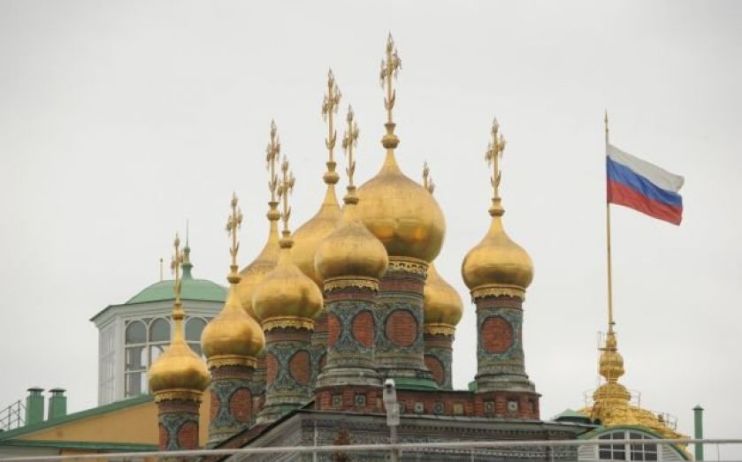Russia-Ukraine: What will sanctions mean for UK businesses?

Liz Truss this week warned Russia that the UK is now prepared to hit the Russian Federation with its “toughest sanctions regime” ever, as it seeks to deter the country from sending troops into Ukraine.
“Nothing is off the table and there will be nowhere to hide,” the foreign secretary said.
But as of yet, the UK and its international partners have been purposefully vague about what their new sanctions regimes might look like.
The secretive approach taken so far is aimed at keeping the Kremlin in the dark and limiting its ability to prepare itself, David Savage, head of financial crime at Stewarts told City A.M.
However, from what we can decipher from the rhetoric coming out of both the White House and Westminster, both London and Washington are currently focused on plans to sanction specific individuals who are linked to the Kremlin, instead of placing more far-reaching sanctions on the wider Russian economy.
The UK government has already extended the powers it has to slap sanctions on individuals linked to Putin, while the Biden administration has set out its intentions to target Putin’s inner circle.
Global turmoil
The EU, on the other hand, is keeping the option of more far-reaching sanctions on the table.
In the most extreme scenario, this could see the EU lock Russian banks out of the global financial system, by preventing Russia’s financial institutions from using the SWIFT network.
“That would cause quite a significant amount of global turmoil,” Savage said as he warned that Russia is also “highly likely to retaliate” against any sanctions, particularly by restricting flows of oil and gas to Europe.
Any drop in Russia’s energy exports would have a major impact on the Russian economy – which generates ~60 per cent of its export revenues from exporting energy – and come as a major hit to Europe at a time of soaring gas prices.
As such, experts speaking to City A.M. said that any UK business with links to Russia should be prepared to cut their ties to the country.
This could include major British firms such as folding bike manufacturer Brompton, which gets titanium from Russia.
“Smart businesses will already be thinking about whether they can get their supplies from other countries,” Ben Knowles, a partner at Clyde & Co, said to City A.M.
Aside from oil and gas, Russia is also a major exporter of various raw materials including gold, platinum, and aluminium.
Cracking down
Nonetheless, critics have also warned that any sanctions regime will only be effective if they are enforced properly, amid claims that the UK’s enforcement agencies, including the Office for Financial Sanctions Implementation (OFSI), lack sufficient resources.
Speaking to City A.M. Susan Hawley, executive director of financial crime think-tank Spotlight on Corruption, said: “Any sanctions will also need to be properly enforced, which means investing significantly greater resources and powers in the sanctions enforcer, OFSI.”
To date, the OFSI has only issued six fines, worth a total £20.7m, since being launched in 2016, UK government figures show.
Knowles said the government may also find it difficult to sanction individuals due to the complexities of establishing ownership and control.
Aside from sanctions, the UK could also seize oligarch’s UK assets, including London properties, using anti-corruption legislation.
“That could hit oligarchs pretty hard, but it would need better cooperation between government agencies,” Savage said.
In Hawley’s view, more far-reaching measures are needed.
“The government needs to urgently close the loopholes that have allowed dirty Russian money into the UK by bringing in urgent reform to Companies House, closing the loopholes in the golden visa regime, and introducing a register of foreign property ownership,” Hawley told City A.M.